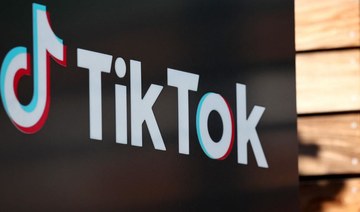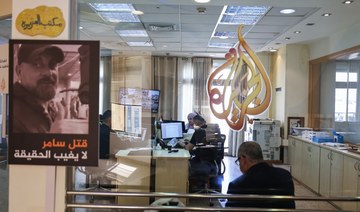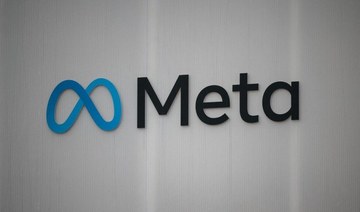DUBAI: With more than 100,000 influencers active on TikTok globally in 2020, according to Statista, the short-form video app has increasingly positioned itself as a potentially lucrative social media platform for content creators.
Creators often describe the app’s editing capabilities and binge-worthy content style as especially appealing, luring them away from other popular platforms such as Instagram and Facebook.
Along with this shift in platforms, there has also been a move away from the use of the word “influencer,” to be replaced by “creator.” The former conjures up images of lavish holidays, luxury fashion and a type of aspirational lifestyle that can leave followers feeling inadequate about their own lives.
“The term ‘influencer’ has become outdated, with many social media stars preferring ‘creator,’” Harry Hugo, the co-founder of The Goat Agency told The Drum. “Why? Top creators aren’t just posting aesthetic content; they do so much more.”
In other words, for a creator to be successful it is imperative that they post authentic and helpful content and do not simply aim to “influence” an audience.
Xzit Thamer, a creator in Saudi Arabia, focuses on gaming and mostly posts content related to Grand Theft Auto. He quit his day job in 2020 to focus on creating content for TikTok.
“I never knew back then I would reach 7 million followers and be one of the top gaming content creators in the Middle East,” he told Arab News.
TikTok is certainly having its moment in the sun but this is more than just a passing fad, experts believe. The platform’s popularity appears to be sustainable, according to Natasha Hatherall-Shawe, founder and CEO of marketing agency TishTash.
“The simplicity of TikTok’s mission,” which is to capture the attention of audiences with short videos, has “superseded other platforms” such as Meta’s Facebook and Instagram, which are now trying to play catch-up by introducing features such as Reels, she told Arab News.
According to Thamer, who has been creating content for nine years: “TikTok is the best platform for content creators.”
With top creators capable of building such large audiences, TikTok understandably invests in them through programs such as the Creator Fund, which directly rewards selected creators. In the Middle East and North Africa region, the platform also launched its Creator Hub program in the UAE and Egypt in September 2022 to help identify talented creators and connect them with mentors and experts who can support their development and nurture their skills.
But several high-profile creators have criticized TikTok over its Creator Fund. One of the main complaints is that the pool of available money has remained much the same even while the number of creators continued to increase.
Popular creator Hank Green, who has more than 7 million followers on TikTok, called out the platform in a video uploaded to YouTube. In it, he acknowledged that TikTok is “tremendously powerful” and “extremely well designed” but accused it of “dramatically underpaying creators.”
TikTok isn’t the first or the only platform to offer direct financial rewards to certain creators. Several social media platforms, including YouTube and Instagram, offer special initiatives for creators but some experts say this is not always a good thing and question their value.
“YouTube is notoriously stingy with the revenue it shares with creators and TikTok is not much different,” said Hatherall-Shawe.
While “creator programs benefit the platform at a micro level,” she added, “it is definitely hard to feel justified in the revenue received as a creator directly from the platform.”
This is why it is important for creators to consider alternative monetization opportunities on the back of their TikTok fame, said Hatherall-Shawe.
One such opportunity is brand collaboration. The cost to a brand of recruiting a creator to collaborate on a campaign, or even a single post, on TikTok can vary widely. Although the social media and influencer industries are strictly licensed in Gulf countries, it is still something of a “wild west” situation in which the cost to a brand of a single post from a popular creator can be upwards of $4,000, said Hatherall-Shawe.
By way of an example, Mohammed Ghadour, who spends four hours every day creating TikTok videos, earns between $1,000 and $3,000 a month, according to a report by the BBC.
Aside from the possibility of brand collaborations, Hatherall-Shawe said, TikTok also provides tools designed to help creators make more money directly from their own content. Last year, for example, the platform introduced a “tip jar” feature through which fans can send cash tips to creators.
It also unveiled “video gifts,” a mechanism for viewers to send creators virtual gifts and coins. These can be redeemed for TikTok’s digital currency, “diamonds,” which in turn can be converted to cash. And, of course, popular creators can also use the fame they achieve on TikTok to sell their own merchandise or business-related offerings to followers.
“TikTok as a search engine for retail is hugely powerful,” said Hatherall-Shawe. “For many consumers, it is the first port of call for being influenced by fashion, beauty, sports, food and household items that are then purchased via direct channels publicized within the content.”
In May last year, the platform announced a new feature, TikTok Pulse, for sharing advertising revenue with leading creators. To qualify, a creator must have content in the top 4 percent of best-performing videos, have at least 100,000 followers, be over the age of 18, and have posted at least five videos in the past 30 days. Creators meeting all of these criteria receive 50 percent of the revenue from adverts appearing alongside their content.
Taking all of this into account, it is hard to see any downside for creators to prioritizing TikTok over other platforms, particularly for “short-form video content, especially in the fun, food, family and entertainment space — the type of content that is best received in the Arab world at the moment,” Hatherall-Shawe said.
She also pointed out that social media platforms, though extremely well-funded, are not always profitable, and that quantity usually takes priority over quality.
“These platforms are built on a model of user acquisition at all costs and keeping viewers’ eyeballs within their native apps as much as possible — it’s a volume game,” she added.
When leading creators gain enough of a following on TikTok to collaborate directly with brands, they can potentially earn thousands of dollars for a single post, none of which goes to the platform that helped them raise their profile. But that does not mean it is losing out on the deal.
“While a creator will outperform the platform financially as an individual, as a whole business, TikTok is certainly in the lead here,” said Hatherall-Shawe.



























